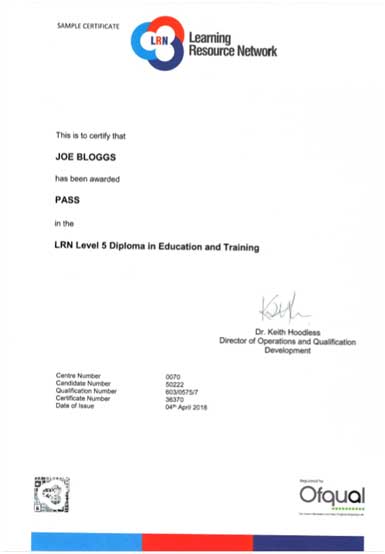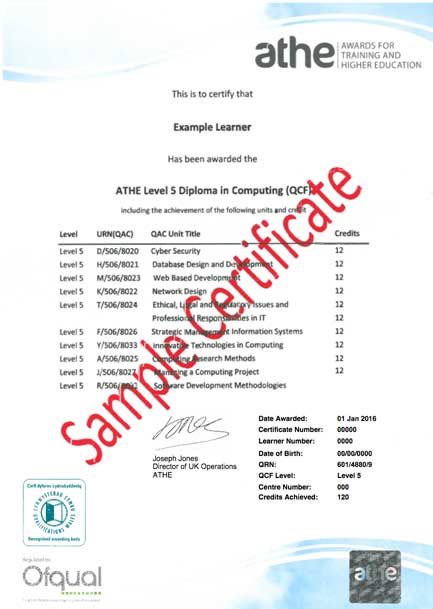Mathematics IGCSE
Mathematics IGCSE
£4999
About This Course
Mathematics is integral to applications and equipment we rely on every day. From building computers to flying a plane or even providing much-needed healthcare practices. Mathematics is an indispensable skill for an extensive range of industries. This course enables you to develop highly sought-after logical and analytical thought processes, problem-solving abilities, and good computing techniques. It will give you the foundation to pursue careers in a wide range of fields including: finance, credit risk, business intelligence, actuarial science, teaching, and research. The contents of this course are covered over 5 modules, all of which contain an assessment upon completion to help test and cement the student’s knowledge and understanding. Therefore, this gives students the best chance of passing an IGCSE qualification in a flexible and affordable manner.
How will I know if I am eligible to complete an IGCSE?
The typical age at which people choose to complete the IGCES’s is 14 to 16, but anyone over the age of 14 can enrol onto this course. You also do not need any previous qualifications to be eligible for this course.
Course Fees
This course comes as part of a package where access to 4 IGCSEs is given for the price of £4999, these include English, Physics, Maths and Business Studies.
Students can make payment using one of the following methods:
- Credit or Debit Card
- Bank Transfer
- Interest Free Monthly installments
- Western Union
What is included in the cost of my course?
- All course material, including online modules and written assignments.
- Personal tutor support with 1-2-1 Zoom sessions where required.
- Dedicated student support
- Access to an online social learning forum
- Assignment marking and feedback.
Module Listing
The Basics
- This section covers a range of topics including whole numbers, fractions, decimals, percentages, ratio, algebraic expressions, equations & formulas, coordinates & midpoints, shapes and angles, area and perimeter, collecting data, averages & range, displaying data and introduction to probability.
Moving on (Foundation)
- This module covers a range of topics including factors, multiples and primes, rounding and approximation, fractions and mixed numbers, proportion, indices, algebraic expressions, equations, formulas and inequalities, Linear sequences, graphs, shapes and angles, transformations, area and volume, compound measures, circles, displaying and interpreting data and probability.
Preparing for Higher Tier
- This module covers a range of topics including percentages, indices and standard form, algebraic expressions, equations, formulae and inequalities, non- linear sequences, graphs and functions, construction and loci, circles, cylinders, cones and spheres, similarity and congruence, Pythagoras and trigonometry, vectors, bias and sampling, grouped frequency tables and probability.
Mastering the Higher Tier
- This module covers a range of topics including decimals and place values, working with roots, algebraic expressions, quadratics, more equations and inequalities, quadratic and other non- linear sequences, graphs and functions, circle theorems, similar shapes, transformations, Pythagoras and trigonometry, vectors, inter- quartile range, histograms, and probability.
Exam Preparation
- This module prepares students for exams by providing exam papers for students to work through, including both Foundation and Higher Tier.
Level: 5 Module Listing
Principles underpinning health and social care
All health and social care professionals have professional codes of conduct. This module aims to develop an understanding of the values, theories, and policies underpinning health and social care practice and the mechanisms that exist to promote good practice within the sector.
The management of quality in health and social care
Quality is an essential component of health and social care services and a concept with many different interpretations and perspectives. The aim of this module is for learners to develop an understanding of different perspectives on health and social care service quality and how it is evaluated in order to empower and involve users of services.
Research project
This module aims to develop the learner’s skills of independent inquiry and critical analysis by undertaking a small pilot investigation of direct relevance to their higher education program or professional development.
Partnership working in health and social care
The aim of this module is to enable learners to develop an understanding of the importance of working positively in partnership with others in health and social care. Learners will explore the nature of partnership on three levels. First, they will examine partnerships with users of services that empower individuals to make informed decisions and encourage independence. Second, they will consider partnerships between different professionals within the health and social care and explore inter-agency working. Finally, learners will investigate organizational partnerships and examine different ways of joint working.
Working with service users with complex needs
The aim of this unit is to help learners to understand issues of health, disability, and illness and how health care professionals can empower those with complex physical and mental health needs to determine their own care.
Sample Certificate

Level 5 Sample Certificate

How do I sit the IGCSE Exam?
Approximately 6 months before an exam date, Students should book their place at an exam centre to take the Edexcel GCSE Mathematics (1MA1 specification) exam.
The exam centre could be a private exam centre or a school or college that is also submitting its own students for the exam.
Edexcel publish a list of exam centres that accept private candidates. This won’t cover every available centre, so if there’s nothing shown in your area, we recommend contacting local schools and colleges directly.
Exam fees are not included in the course cost as they are paid directly to the exam centre. They will vary depending on which centre you choose.
Career path
Upon completion of this course, students will have the foundations and fundamental knowledge needed in order to study A levels or a Level 3 qualification with Mortha Halls of Ivy.
Progression
This level 5 qualification will enable students to teach in the post 16 tertiary education sector of colleges and community schools. The route to teaching in the state school sector using this level 5 qualification is through membership of the Society of Education & Training (SET).
To be eligible for SET membership students are required to have completed their Initial Teacher Training (ITT). ITT involves successful completion of a Level 5 Teacher Training Course, assuming candidates have already completed a Level 2 (GCSE) Maths and English or equivalent. Completion of the courses provides students with their Qualified Teacher Learning Skills (QTLS) which is equivalent to the Qualified Teacher Status (QTS) and sufficient to teach in state schools, as well as Further Education.
For more information on the QTLS and how to achieve it on completion of this level 5 Education and Training qualification, please click here
Students may wish to contact SET direct for further clarification of their requirements
Career Path
Successful completion of the full Level 4/5 Health and Social Care course and final year of an accredited Undergraduate Degree program will act as a springboard to a professional career in health and social care services. The course pulls together theory and practice for those who wish to work with people in a caring environment. It is suitable as a base for those who wish to move onto one of the many health or social professions or those who want to keep their options open.